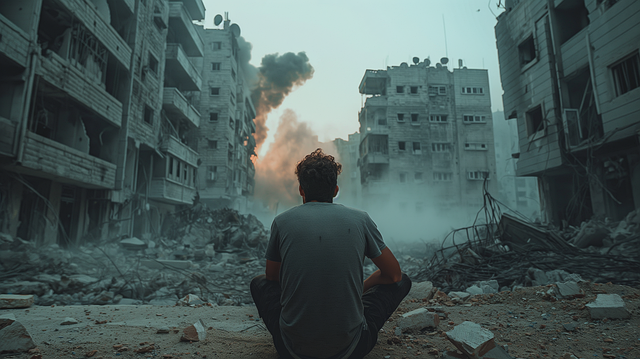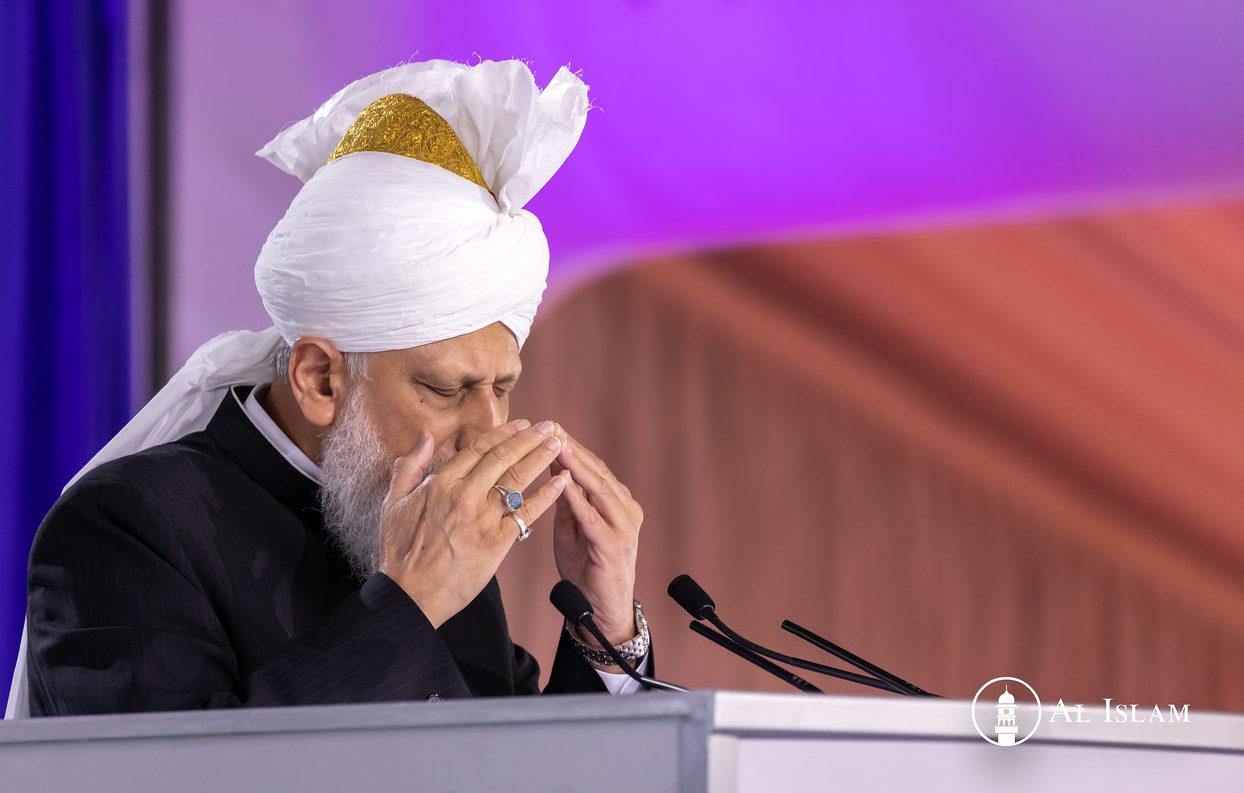Ramadan is a month of eternal blessings. Our journey towards spiritual excellence does not end, rather begins with the end of Ramadan.
APRIL 21, 2023
Blissful experiences are short-lived. The more we wish to savour a moment, the faster it passes. The longer we desire an event to last, the sooner it ends. This relative nature of time is experienced every year globally by Muslims in the holy month of Ramadan.
Although Ramadan is a period of struggle, the countless blessings associated with this month make it the most anticipated time of the year. Hence, Ramadan is greeted like a beloved guest whose arrival has been eagerly awaited. However, like all good moments, this holy month comes to pass so quickly that a true Muslim wishes the whole year to be Ramadan. But, no matter how badly one wishes, there is no denying that a month cannot last a year.
Nevertheless, there might be a way to keep alive the spirit of Ramadan even after the month ends. But to achieve this objective calls for a deeper understanding of the purpose of Ramadan and its essence.
The true spirit of this month can be understood by analysing its name itself. ‘Ramadan’ is the dual form of the root word ‘Ramada’ which means intense heat or burning. Hence, Ramadan comprises two burnings.
What are these two burnings?
When one fasts and abstains from food and drink, the hunger and thirst they experience amount to a physical burning of sorts. In addition, the physical struggle of sleeping less to engage more in worship further contributes to this heat.
On the other hand, there is an increased fervour in worship and heightened zeal to strengthen the bond with God. This is coupled with an intense urge to reform one’s self and progress in morality, all generating a spiritual burning in the person fasting.
The Founder of the Ahmadiyya Muslim Community, Hazrat Mirza Ghulam Ahmadas, who was the Promised Messiah, refers to this true essence of Ramadan expressed in its name as he says:
“Since one abstains from food, drink, and all physical delights during Ramadan, then also establishes a zeal and fervor for [fulfillment of] the commandments of Allah; the spiritual and physical zeal and burning combine to make Ramadan.”[1]
Suffice it to say, the true purpose of Ramadan can only be achieved when these two heats come together. Observing the fast as a mere ritual and ignoring its essence cannot benefit a person in any manner.
In other words, the physical endeavours one undertakes during this month must trigger a positive change in them, enhancing their spiritual and moral faculties. This fact is corroborated by the following words of the Holy Prophetsa. He says:
“When the month of Ramadan enters, the gates of Heaven are opened and the gates of Hell are closed and Satans are chained.”[2]
It is a fact that we do not witness a complete absence of sins during Ramadan. Given this, it may imply that these words of the Prophetsa are not true – at least when taken literally. Here, the clause ‘when Ramadan enters’ demands special attention. It means the conditions mentioned above would only occur when Ramadan and its true essence enter a person’s heart. That is, the true essence of Ramadan is not confined to the outward acts of worship one observes during this month. Rather, it is a way of life.
If this is the case, then the spirit of Ramadan cannot be temporary. Instead, it should be a means of bringing about a lifelong transformation in oneself. In this sense, fasting and other rituals carried out during this month are akin to a training camp that enables a person to attain righteousness.
This exactly has been mentioned by the Holy Quran as the true purpose of fasting. It says:
“O ye who believe! fasting is prescribed for you, as it was prescribed for those before you, so that you may become righteous.”[3]
Ramadan plays yet another vital role in the moral upliftment of man. To have compassion for mankind is one of the fundamental principles of morality. When a person fasts and experiences hunger and thirst, they are reminded of the hardships of the less fortunate, who are deprived of the most basic human needs, such as adequate nutrition. In this manner, fasting develops a feeling of empathy that motivates a person to work towards alleviating the suffering of people in need.
Another important aspect of Ramadan is that it helps man attain true recognition of God. Ramadan is a month wherein extraordinary signs of acceptance of prayers are witnessed. God says in the Holy Quran:
“And when My servants ask thee about Me, say: ‘I am near. I answer the prayer of the supplicant when he prays to Me. So they should hearken to Me and believe in Me, that they may follow the right way.’”[4]
This verse is immediately preceded by the verses that stipulate fasting in Ramadan. This implies that acceptance of prayers is inextricably linked with this month. Hence, Ramadan offers a way to gain true recognition of God, as acceptance of prayers is an effective means of strengthening one’s faith in Him.
The Promised Messiahas says:
“There is a door that Allah the Exalted has opened for the good of His servants, and that is the door of prayers. Whoever enters this door praying and supplicating is clothed in the mantle of purity and piety.”[5]
Hence, the true purpose of Ramadan is for man to bring about self-reformation. It is a month of eternal blessings and long-lasting spirit. Our journey towards spiritual excellence does not end, rather begins with the end of Ramadan.
REFERENCES
[1] Al Hakam 24 July 1901
[2] Sahih al-Bukhari, Kitab as-Saum (Book on Fasting)
[3] Holy Quran 2:184
[4] Holy Quran 2:187
[5] Malfuzat v. 5, p. 438












0 Comments